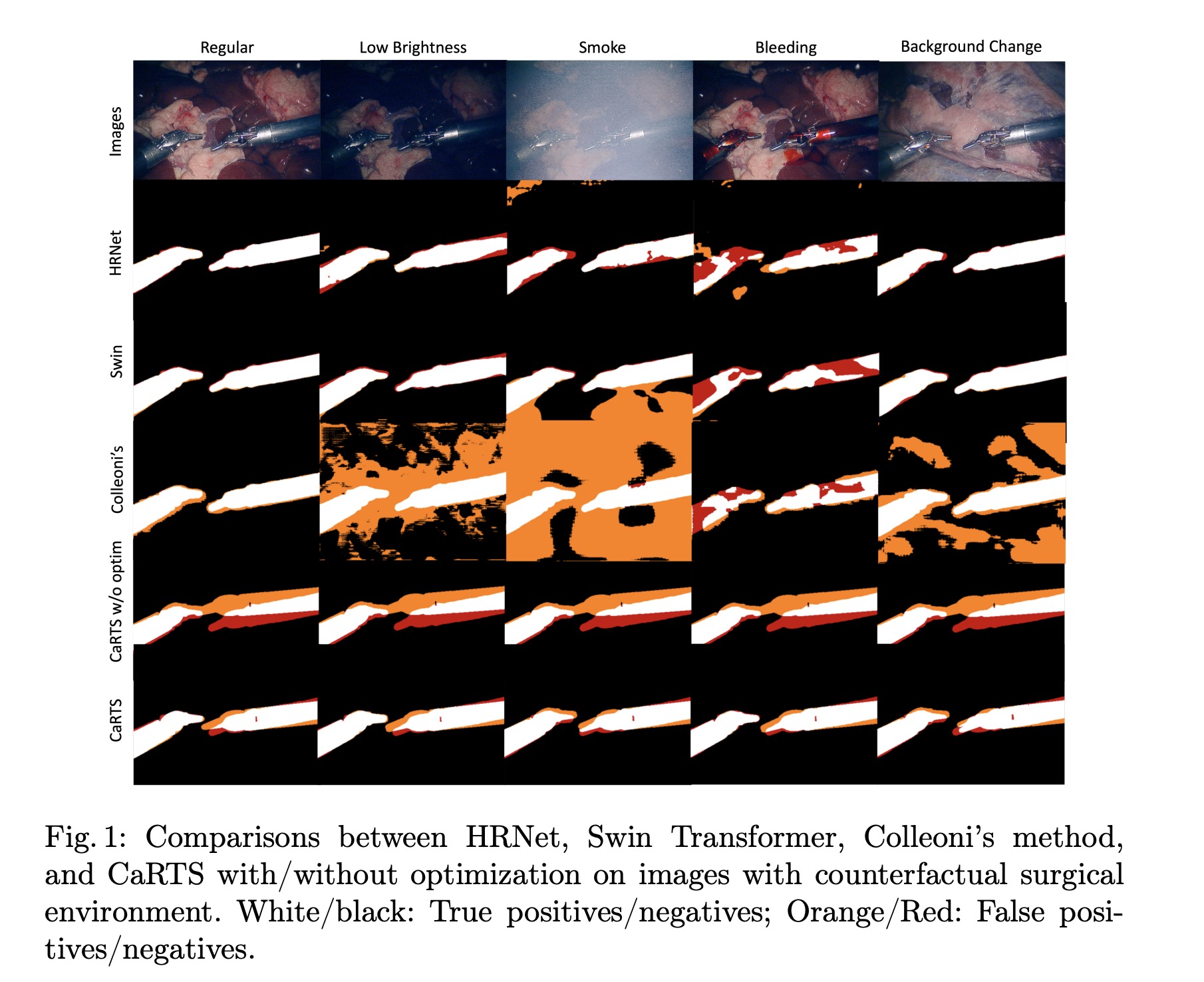Rethinking Causality-driven Robot Tool Segmentation with Temporal Constraints
Purpose: Vision-based robot tool segmentation plays a fundamental role in surgical robots and downstream tasks. CaRTS, based on a complementary causal model, has shown promising performance in unseen counterfactual surgical environments in the presence of smoke, blood, etc. However, CaRTS requires over 30 iterations of optimization to converge for a single image due to limited observability. Method: To address the above limitations, we take temporal relation into consideration and propose a temporal causal model for robot tool segmentation on video sequences. We design an architecture named Temporally Constrained CaRTS (TC-CaRTS). TC-CaRTS has three novel modules to complement CaRTS - temporal optimization pipeline, kinematics correction network, and spatial-temporal regularization. Results: Experiment results show that TC-CaRTS requires much fewer iterations to achieve the same or better performance as CaRTS. TC- CaRTS also has the same or better performance in different domains compared to CaRTS. All three modules are proven to be effective. Conclusion: We propose TC-CaRTS, which takes advantage of temporal constraints as additional observability. We show that TC-CaRTS outperforms prior work in the robot tool segmentation task with improved convergence speed on test datasets from different domains.
PDF Abstract

